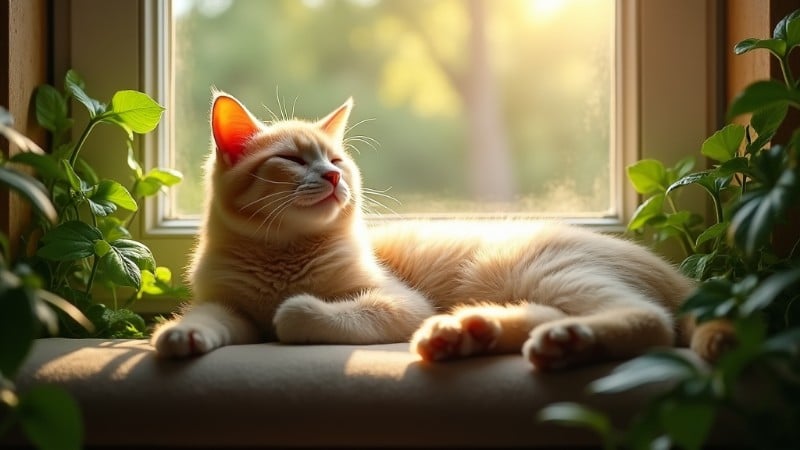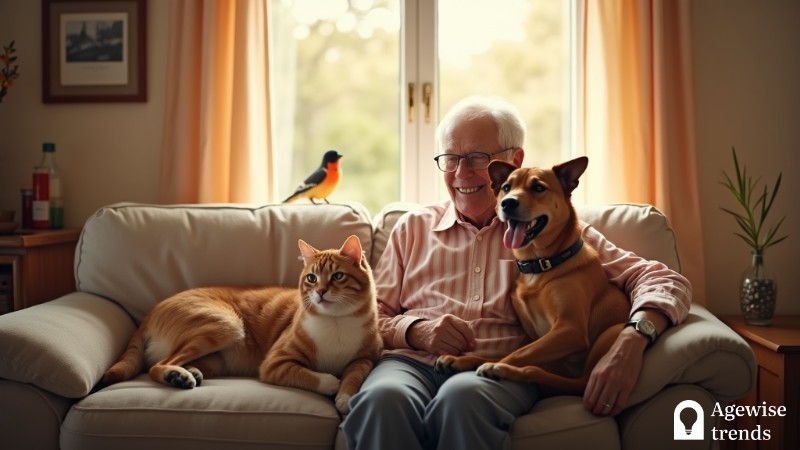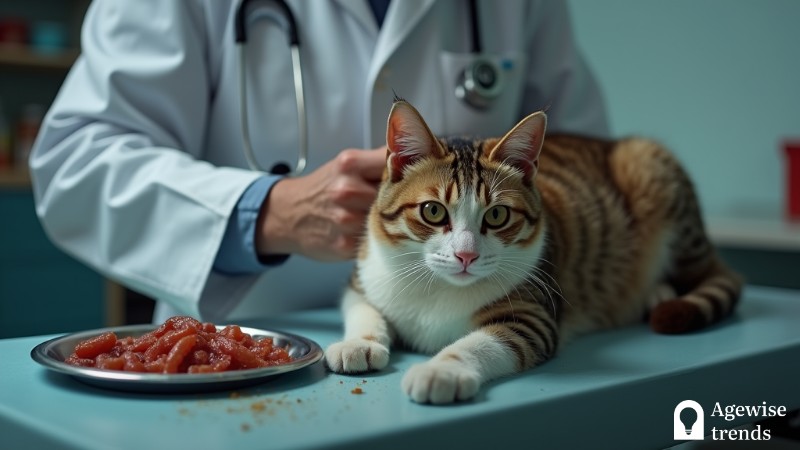Losing a pet is one of the most heart-wrenching experiences for pet owners. For many, pets are more than just animals, they are beloved family members who offer companionship, comfort, and unconditional love. The bond shared with our pets is deep and personal, making their loss incredibly painful. Whether it’s the passing of a dog, cat, or any other animal companion, the grief felt can be just as profound as the loss of a human loved one.
Key Takeaways
Losing a pet is a heart-wrenching experience that can evoke profound grief, similar to losing a human loved one.
- Pets are considered family by many people and offer unconditional love, security, and joy, making their loss especially impactful.
- Grief after losing a pet follows a series of stages, including denial, anger, bargaining, depression, and acceptance, which can be a complex and individual process.
- Support from others, self-care, and honoring the pet’s memory are essential for navigating this difficult time and finding healing.
The bond between pets and owners
Humans have shared a bond with animals for thousands of years, from ancient Egyptians revering cats to modern pet owners celebrating their pets’ birthdays. These bonds are built on affection, loyalty, and companionship.
For many people, pets are not just animals; they are considered family. They offer unconditional love, security, and joy. Beyond companionship, pets help reduce stress, improve mental health, and provide a sense of purpose. Their presence brings comfort during tough times, making their loss especially impactful.
Understanding grief: The emotional rollercoaster
Grieving the loss of a pet is a complex and individual process. It’s important to recognize that pet grief is real, valid and should be acknowledged just like grief from losing a human loved one. The grief process often follows a series of stages, although they are not always linear. The stages include denial, anger, bargaining, depression, and acceptance.
Denial: In the beginning, denial serves as a protective mechanism, helping to shield the heart from the overwhelming pain of loss. Pet owners might struggle to accept the reality of their pet’s death, often thinking that it’s a bad dream or that their furry friend will return. This stage can feel confusing and isolating, but it is a natural response to such a deep loss.
Anger and bargaining: After the initial shock wears off, anger often follows. This anger may be directed toward oneself, the vet, or even the circumstances surrounding the pet’s illness or death. “Why did this happen?” or “What could I have done differently?” are common thoughts that emerge.
Bargaining is another emotional response, where individuals find themselves wishing they could have changed the outcome. “If only I had noticed the signs earlier” or “If only I had taken them to the vet sooner” are typical expressions of this stage. It reflects a desire to undo what’s happened, even though it’s impossible.
Depression and acceptance: The sadness that comes with depression can be all-consuming. The realization that a beloved pet is gone creates an emotional void, and the grief may feel overwhelming. At this stage, individuals may experience profound sadness, loss of appetite, fatigue, and an overwhelming sense of emptiness.
Acceptance is the final stage, though it doesn’t mean forgetting or “getting over” the pet. Instead, it’s about finding peace with the loss and cherishing the memories shared with the pet. It takes time to heal, and individuals may feel that their grief evolves as they learn to live without their companion.
Coping strategies for pet loss
Grief is a unique experience, and there is no “right” way to cope with the loss of a pet. However, several strategies can help pet owners navigate this difficult time and find healing.
Allow yourself to grieve: The most important step in the grieving process is permitting yourself to grieve. Everyone experiences grief in their own way and on their own timeline. It’s okay to cry, feel sad, or even feel numb. These emotions are part of healing, and you should never feel ashamed of them.
Seek support from others: It’s easy to feel isolated during this time, especially when others may not understand the depth of your grief. Friends and family may unintentionally minimize the loss, suggesting that “it was just a pet” or “you can always get another one.” While these comments might be well-meaning, they can feel dismissive of the pain you’re experiencing. Seeking support from others who understand the bond you shared with your pet can provide comfort.
Consider joining a support group or speaking to a therapist who specializes in pet loss. Talking with others who have experienced similar loss can validate your feelings and provide a sense of community during this time.
Create a tribute to your pet: Honoring your pet’s memory can be an important part of the healing process. Creating a tribute can help you feel connected to the love you shared and provide a sense of closure. This could include putting together a photo album, planting a tree, or even holding a small memorial service. Doing something meaningful to remember your pet can help you hold onto their memory in a way that feels comforting.
Take care of yourself: Grief takes a physical toll on your body. During this challenging time, it’s essential to prioritize self-care. Make sure you’re eating well, staying hydrated, and getting enough rest. Regular physical activity, even something as simple as a daily walk, can help reduce stress and improve your mood. Mindfulness and relaxation techniques, such as meditation or journaling, can also help you process your feelings and find peace.
Healing after pet loss
While the pain of losing a pet never fully disappears, over time, the intensity of grief lessens. This doesn’t mean forgetting your pet, but rather learning to live with their absence while cherishing the memories they left behind. Healing from losing a pet is a personal journey, and each individual progresses at their own speed.
When the time feels right, some individuals choose to adopt another pet. While it won’t replace the one you lost, a new furry friend can bring joy and comfort back into your life. Others may decide that they’re not ready for another pet yet, and that’s perfectly okay too. The decision to bring a new animal into your home should be made when you feel emotionally ready, and not as a way to “replace” the pet you’ve lost.
Supporting others through pet loss
If you know someone who is grieving the loss of a pet, offering support is vital. It can be difficult to watch a friend or loved one struggle with this kind of loss, but your empathy can be invaluable. Instead of trying to fix the situation, offer a listening ear and validate their feelings. Let them know it’s okay to grieve, and that you’re there for them. You may also suggest professional help, such as pet loss counseling or support groups, to assist them in their healing journey.
Pet care and benefits: The importance of pets
The love and companionship that pets offer can have long-lasting benefits for their owners. Pet care goes beyond feeding and grooming. It’s about forming a bond that provides emotional, physical, and mental support. Many pet owners experience improved mental health, reduced stress, and increased physical activity thanks to the presence of their pets.
The pet ownership benefits extend far beyond companionship. Pets encourage a sense of routine and responsibility, improve heart health, and even promote social interaction. They are often a source of unconditional love, making the loss even harder to bear. However, these benefits make it clear why pets hold such an important place in our lives.
Cherishing the love and memories
Losing a pet is a deeply personal experience, and the grief that follows is natural. While the pain may feel overwhelming, the love and memories we share with our pets will always remain in our hearts, offering comfort.
Healing takes time, and it’s important to be patient with yourself. Grief doesn’t follow a set timeline, and it’s okay to feel a range of emotions. By seeking support, honoring your pet’s memory, and caring for yourself, you can eventually find peace. The journey through grief can be difficult, but it leads to healing and acceptance. Ultimately, the love we hold for our pets remains eternal.















